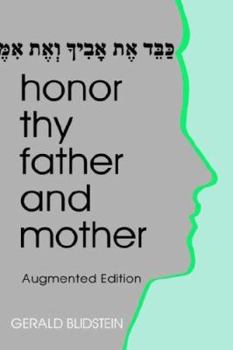Honor Thy Father and Mother: Filial Responsibility in Jewish Law and Ethics
Select Format
Select Condition 
Book Overview
No Synopsis Available.
Format:Hardcover
Language:English
ISBN:0881258628
ISBN13:9780881258622
Release Date:January 2006
Publisher:Ktav Publishing House
Length:234 Pages
Weight:0.05 lbs.
Customer Reviews
1 rating
worth reading
Published by Thriftbooks.com User , 19 years ago
though not as practical as I imagined from the title - but paradoxically, the book explains its own impracticality, by pointing out that given the variety of possible parent/child conflicts, it isn't really possible for halacha to address most of them. Nevertheless, the book raises a few interesting points: *pointing out the difference between appropriate behavior in private and in public. A child is (under Jewish law) free to argue with parents in private, but must be more circumspect in public. *generally, Jewish law focuses on obligations of material support- understandably given that in an pre-industrial economy, parents' economic power declined as their physical strength declined. (By contrast, today, even middle-aged children are often dependent on wealthier parents!) *Despite the preindustrial tradition of arranged marriages, rabbis generally (though not unanimously) held that a mature child's interest in picking an appropriate spouse overrode parental objections, based on the theory that marriage and procreation were religious obligations as weighty as honoring parents. *Saadia Gaon wrote that Jewish opposition to nonmarital sex arose from the danger that humans might not know their fathers as a result of unplanned pregnancies.





